Credit scores have become an important part of our financial lives. Your credit score allows lenders to evaluate how likely you are to repay a loan. It’s a number they use to assess the probability of you staying on top of your repayments and out of debt.
If your credit score isn’t up to scratch – and you plan on getting a truck loan, a van loan, or other types of commercial vehicle financing – then you’ll likely want to improve it before applying for the loan.
This article covers 3 main steps towards improving your credit score:
- The first step is to understand what your credit score is and how it works.
- The second step is to know what is considered a good credit score and how yours compares.
- Finally, you’ll see what actions you can take to improve your credit score if you wish to.
Let’s dive in…
What is ‘credit’ and how does it affect your credit score?
‘Credit’ is a term used to refer to the collection of different types of financial information about you that lenders can use to evaluate whether you’re likely to repay loans.
Knowing all the things that constitute ‘credit’, helps you understand how your history of making payments on time for these things influences your credit score.
Examples of credit you might already have:
- Credit cards
- Loans – personal loans (secured and unsecured), car loans, home loans (mortgage), business loans, student loans, and more
- Short-term or ‘pay day’ loans
- Buy Now Pay Later services
- A mobile phone plan
- Services such as internet, electricity, gas, or water
How much credit you have – and how you’re managing that credit – is one of the main things that lenders will look at when considering you for financing.
It’s also one of the main things that influences your credit score.
So what exactly is a credit score?
If you’ve ever asked yourself “What is a credit score?” you’re not alone. It can be a little confusing at times, but in a nutshell:
Your credit score is a number that indicates to lenders how capable you are at regularly paying your debts, and whether you’re able to pay them off within the agreed timeframe.

While credit sits at the heart of your credit score, the score itself is calculated using a number of different criteria which generally includes your repayment history, credit enquiries (past 5 years), any adverse events, length of credit history, personal information, credit limits.
Some things you’ll want to pay attention when it comes to your credit score:
- How long you’ve been paying your bills on time? (If you haven’t paid your bills on time for over 12 months, your score can fall significantly.)
- Have you experienced late payments? (Late payments can lead to a drop in your score.)
- Do you regularly spend more than you earn? (Lenders often use this as a sign that you might be struggling to stay on top of your budget.)
- Do you have a good record of repaying debts? (The last thing you want is to rack up huge debts, and then struggle to pay them back.)
- Are you currently in financial distress? (If you’re in financial difficulty, lenders may be hesitant to lend to you.)
- Do you have any outstanding collections? (Collections can stay on your credit report for up to 7 years. This means they can affect your score for a long time after you’ve paid them off.)
Being aware of, and working on ironing out some of the above things if they’re an issue, is one of the first steps towards improving your credit rating.
It’s also worth noting that your credit rating and credit score are two slightly different things:
- Your credit rating is the ‘range’ that your credit score sits inside (e.g. below average, good, excellent, etc.).
- Whereas your credit score is the exact numerical score.
And one, or both of these, are components of your overall credit report.
What’s the difference between a credit score and a credit report?
In Australia, when you apply for a loan or credit card, you’re providing your lender with an application which prompts them to check your credit score – often by pulling your credit report – from Equifax, Experian, or Illion (the three major credit bureaus in Australia).
Your credit report generally includes:
- Your personal information (i.e. name, gender, DOB, driver’s licence number, employer, addresses (current and previous)).
- Your credit rating (i.e. the ‘range’ your credit score sits inside which may also include your credit score, but not all credit reporting agencies include both).
- Credit products (i.e. credit products you’ve held within the last 2 years including: type of product (e.g. credit card, home loan, business loan, etc.), credit provider, credit limit, opening and closing account dates, and any joint applicant names).
- Repayment history (i.e. each credit product you’ve held within the last 2 years including: repayment amounts, repayment due dates, repayment frequency (and if they were on time), any missed payments (and if/when they were made up)).
- Credit applications (i.e. credit you’ve previously applied for including: the number of applications you’ve made, the total amount of credit you’ve borrowed, and any loans that you’re the guarantor of).
- Any financial hardship information – Financial hardship arrangements for credit products can appear on your credit report. Only the months the arrangement is in place will show on your credit report. If the arrangement is permanent, the month the loan is varied will show. No other details are included.
- Any defaults – Defaults on utility bills, credit cards, and/or loans can show on your credit report. Defaults are ‘non-payments of a debt’ to a service provider, and the service provider may report these to a credit reporting agency, but they have to notify you first that they’re going to do so.
- Any adverse events (i.e. bankruptcies, debt agreements, court judgments, or personal insolvency agreements in your name).
- Credit report requests – Every time a credit provider makes a request for your credit report, it registers on the credit report.
Your lender then compares your credit score to your past credit history. They’ll generally use your score as the basis for the loan approval and your credit report as the basis for the loan terms they offer to you.
This is why it’s important to make sure all the information in your credit report is up to date, accurate, and doesn’t contain any errors. You can get a copy of your Equifax credit report here, your Experian Credit Report here, or your Illion credit report here.
You can also check out our article with step by step instructions on how to do a credit score check with all three of the credit bureaus.
Why is it useful to have a good credit score?
Since a credit score is generally used by lenders to understand how reliable you’ll be in paying back credit – a higher score tends to increase your chances of securing the credit you’re after, under terms that are suitable to you.

However, the lower your score, the higher your chance of having your application for credit rejected. If you’re a small business owner looking to borrow money to finance a commercial vehicle, you’ll need to be aware of this.
The majority of lenders who look at your credit score are likely to decide whether or not to approve you for the loan based on that score. If they believe your score indicates that you’re at high risk of defaulting on any future loans, they could deny you the loan outright.
What’s considered a good credit score?
If you’re a sole trader or small business owner who’s planning to borrow money to finance a commercial vehicle for your business, you should know what lenders recognise as a good credit score.
Each of the three main credit bureaus have slightly different ways of scoring your credit report, but all three generally use a five-point scale that plots your score somewhere inside one of the brackets shown in the table below:
| Equifax | Experian | Illion |
| Credit score: 853 – 1,200 Rating: Excellent ✅ | Credit score: 800 – 1,000 Rating: Excellent ✅ | Credit score: 800 – 1,000 Rating: Excellent ✅ |
| Credit score: 735 – 852 Rating: Very good ✅ | Credit score: 700 – 799 Rating: Very good ✅ | Credit score: 700 – 799 Rating: Great ✅ |
| Credit score: 661 – 734 Rating: Good ✅ | Credit score: 625 – 699 Rating: Good ✅ | Credit score: 500 – 699 Rating: Good ✅ |
| Credit score: 460 – 660 Rating: Average ⚠️ | Credit score: 550 – 624 Rating: Fair ⚠️ | Credit score: 300 – 499 Rating: Room for improvement ⚠️ |
| Credit score: 0 – 459 Rating: Below average ⚠️ | Credit score: 0 – 549 Rating: Below average ⚠️ | Credit score: 1 – 299 Rating: Low ⚠️ |
Now that you know what the main credit reporting agencies consider a good credit score, and you may have even requested your credit report from one (or all) of them, you may not be satisfied with where your score currently stands.
If this is the case, let’s have a look at what you can do to improve your credit score…
Before you set out to improve your credit score
Before digging into the actions you can take to improve your credit score, it’s worth noting up front that there’s generally no quick fix solution when it comes to improving your score because it’s a result of your financial history and some entries will stay on your credit report for years.
Here are some general time frames for how long information stays on your credit report:
- Repayment history – 2 years
- Credit accounts (any open credit accounts and accounts that have been closed in the past two years) – 2 years
- Credit enquiries – 5 years
- Defaults and/or clearouts – 5 years
- Writs, summons, court judgements – 5 years
- Serious credit infringements – 7 years
- Bankruptcies, debt agreements or personal insolvencies – varying time frames
- Identity information (including name, DOB, gender, driver’s licence, address history) – held for the life of the credit report
The good news, however, is that even though you can’t improve your score overnight, with time, consistency, and good financial habits you can increase your credit score.
5 ways to improve your credit score
There are several actions you can take to improve your credit score and clean up your credit history to give yourself the best chance of being approved for that commercial vehicle financing (and at a good rate, too!):
1. Fix any mistakes on your credit report
Unfortunately, mistakes on credit reports are much more common than they should be. And these mistakes may be harming your credit score without you even knowing they’re there.
Mistakes on your credit report can result from:
- Consumer errors – where you incorrectly fill out information on an application which then gets reported to the credit bureaus regardless of whether you got accepted or rejected.
- Creditor errors – where a creditor incorrectly inputs details from your application into the report they send to the credit bureaus.
Some common mistakes include:
- Personal information, i.e. outdated addresses or full names (in the case of name changes, e.g. after getting married).
- Credit enquiries, i.e. incorrect amounts from applications recorded on credit reports (note: when you apply for credit – regardless of whether you’er accepted or rejected – these credit enquiries appear on your credit report).
- Repayment history, i.e. positive repayment history you’ve accomplished in the past may be missing from your credit report (note: even with banks being made to report both positive and negative credit behaviour, it can still be missing from your report, dragging down your score).
All of the above can be a problem, because if your details aren’t consistent across all your financial information, your positive financial behaviour might not be appearing on one of your credit reports.
That’s why it’s worth double checking all your credit applications, keeping your information updated with any current creditors you’ve got, and having a look at all your credit reports to make sure there aren’t any mistakes on them.
Once your credit report is clear of any errors, you can focus on building your credit score.
2. Make repayments on time
While you can’t go back and fix past repayment mistakes, you can start improving your creditors’ confidence in your abilities by staying on top of your repayments from now.
Making sure each bill is paid on time (every time!) contributes to positive credit reporting and can significantly boost your credit score over time. You may want to set up reminders that prompt you to pay on time, or even automate this process so that there are no surprises when bills are due.
If at all possible, try to avoid making late payments. However, if it happens once or twice in a row, a handy thing to do is call your lender right away so they know what happened and don’t report it as a negative mark against your credit score.
3. Repay your existing debts
Depending on the current debts you may have, you might be able to pay some of them off earlier than you anticipated if you get your budgeting under control.

While something like a mortgage generally takes a long time to pay off, something like an outstanding credit card balance could be a good place to start.
You could pay a little extra when you make your monthly repayment, or you might prefer to break it up and pay smaller amounts more frequently throughout the month.
Whatever it is that you’d like to pay off early, just speak to the credit provider to make sure there are no penalties for early early repayments and that they can accept more frequent amounts than were originally agreed upon in your contract.
By repaying your existing debts you start to show lenders and creditors that you can plan, take control of finances, and be responsible.
4. Space out your credit applications
When you apply for credit (see the definition of credit outlined at the beginning of this article) it results with a lender looking at your credit report which can register as something called a ‘hard enquiry’ meaning it shows up on your credit report.
What’s important to consider here is that these enquiries on your credit report might show a different story to lenders than what may actually be the case. For example, you might have made several applications for a van or truck loan because you were trying to find the best deal.
But those various applications, and the short timeframe within which they were made, could indicate to lenders and credit providers who look at your report that you’re experiencing financial difficulty, leading them to reject you for financing.
That’s why spacing out your credit applications can work in your favour.
5. Consider keeping credit accounts open
The length of your credit history can positively contribute to your credit score. The longer you’ve had a credit account open, the more data there is to use to calculate your credit score – especially if it demonstrates that you can consistently handle a line of credit.
So, where appropriate – and where it doesn’t cause you any financial distress – consider keeping the credit account open.
However, also keep in mind that having a long credit history is not a guarantee of positive impact on your credit score. In fact, a large amount of negative activity on a credit account can have a negative impact on your score. So you’ll have to make a judgement call – which is often best done after speaking with a finance professional, such as an advisor, who can look at your overall situation and help.
What if you need a work vehicle now and don’t have time to improve your credit score?
While you’re perfectly capable of taking the steps to improve your credit score and get the commercial vehicle financing you need, perhaps you just don’t have the time? Maybe you’ve got a job lined up, ready to go right now, but you need your own vehicle to do it.
The good news is, ARG’s Rent To Buy solution is a leading alternative to commercial vehicle financing.
It’s designed to quickly get you on the road and working, while also giving you a path towards buying the vehicle outright. And because there’s no need for any loans or financing, it means there’s no fuss around your credit score.
Find out more about ARG and how you can Rent To Buy the work vehicle you need.
Disclaimer: The information contained in this article is general in nature and does not take into account your personal objectives, financial situation or needs. Therefore, you should consider whether the information is appropriate to your circumstance before acting on it, and where appropriate, seek professional advice from a finance professional such as an adviser.

